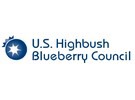A new research study published in Nutrients finds that blueberries have cognitive benefits. More specifically, the equivalent of a half cup of fresh blueberries per day, consumed as freeze-dried blueberry powder, was found to help middle-aged individuals against cognitive decline when implemented early in at-risk individuals.
The randomized, double-blind, placebo-controlled trial, “Blueberry Supplementation in Midlife for Dementia Risk Reduction,” looked at the impact of blueberry supplementation to produce measurable cognitive benefits in the context of aging and insulin resistance. Participants (n = 27) were overweight (BMI > 25) men and women 50 to 65 years old with subjective cognitive decline and moderate insulin resistance. Over the course of 12 weeks, participants were randomly assigned to consume either freeze-dried blueberry powder or placebo powder daily. Pre-and post-intervention assessments of cognition and metabolism and exploratory measures of peripheral mitochondrial function were conducted.
The blueberry group experienced improved performances on measures of lexical access, such as letter fluency as measured by the Controlled Word Association task, improved performances on measures of memory interference, such as fewer recall intrusion errors as measured by the California Verbal Learning Test and more. The blueberry group also experienced correction of peripheral hyperinsulinemia, which is associated with neurodegeneration in the brain, as well as a significant decline in fasting insulin levels.
The study authors suggest the potential mechanisms for these findings may be associated with anthocyanins and proanthocyanidins, the bioactive flavonoid compounds found in blueberries.
This research provides evidence that blueberry supplementation can improve cognitive function and correct high insulin levels in these participants with prediabetes,” said Robert Krikorian, PhD, Department of Psychiatry & Behavioral Neuroscience, University of Cincinnati Academic Health Center and the study’s lead investigator.
The study, supported by funding from the U.S. Highbush Blueberry Council, builds on research in this area which demonstrated improvement in long-term memory performance with blueberry supplementation in older adults with mild cognitive impairment. It also supports research that found an association between blueberry consumption and improved metabolic function in at-risk individuals, such as an improvement in insulin sensitivity.
Further research is needed with a more robust sample size.
The USHBC had no role in study design, data collection, analysis, interpretation or writing the study.
 For more information:
For more information:
U.S. Highbush Blueberry Council
www.ushbc.blueberry.org
www.nabcblues.org
